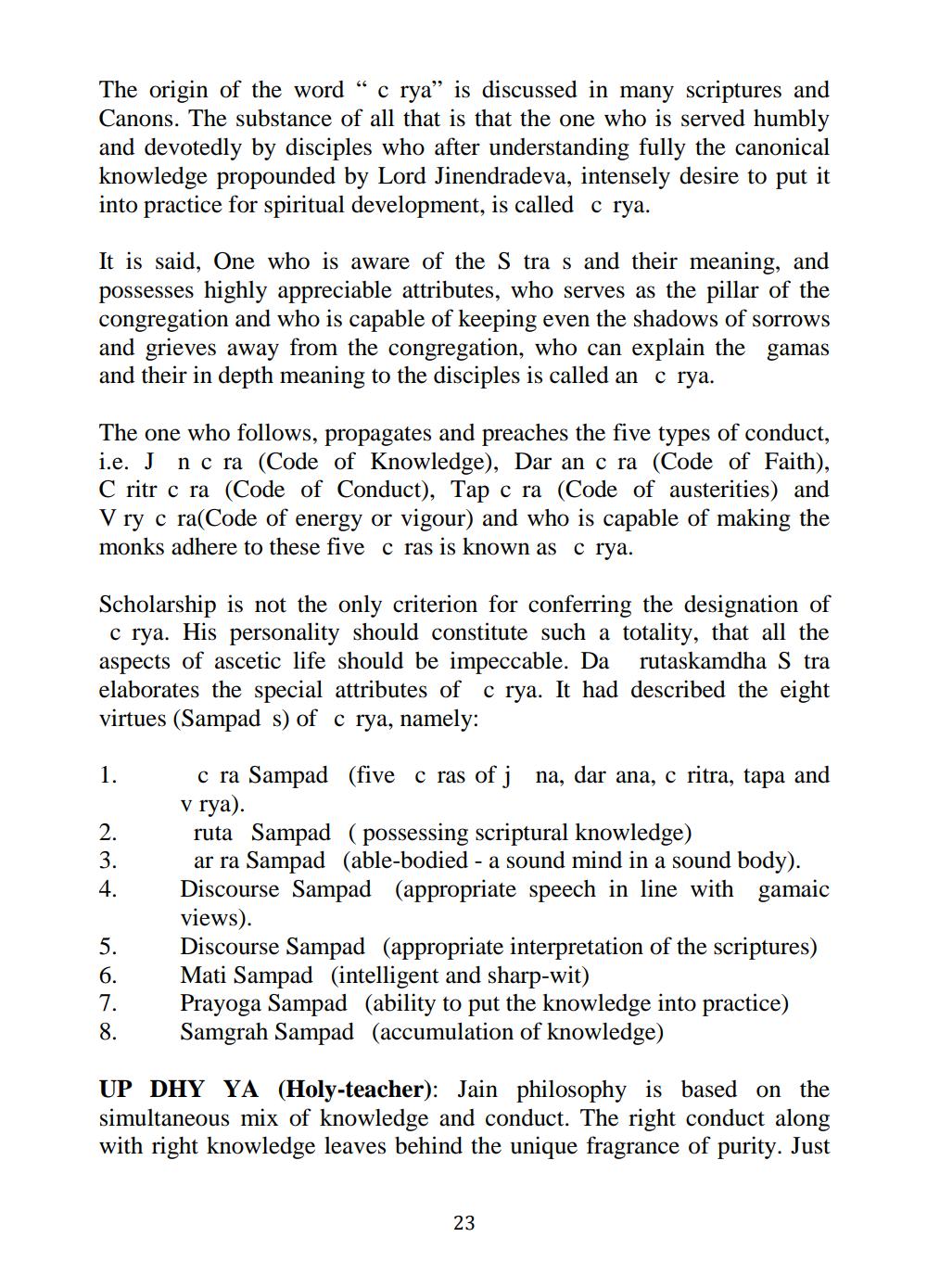________________
The origin of the word “ c rya” is discussed in many scriptures and Canons. The substance of all that is that the one who is served humbly and devotedly by disciples who after understanding fully the canonical knowledge propounded by Lord Jinendradeva, intensely desire to put it into practice for spiritual development, is called c rya.
It is said, One who is aware of the S tra s and their meaning, and possesses highly appreciable attributes, who serves as the pillar of the congregation and who is capable of keeping even the shadows of sorrows and grieves away from the congregation, who can explain the gamas and their in depth meaning to the disciples is called an c rya.
The one who follows, propagates and preaches the five types of conduct, i.e. J n c ra (Code of Knowledge), Dar an c ra (Code of Faith), C ritr c ra (Code of Conduct), Tap c ra (Code of austerities) and V ry c ra(Code of energy or vigour) and who is capable of making the monks adhere to these five c ras is known as c rya.
Scholarship is not the only criterion for conferring the designation of
c rya. His personality should constitute such a totality, that all the aspects of ascetic life should be impeccable. Da rutaskamdha S tra elaborates the special attributes of c rya. It had described the eight virtues (Sampad s) of c rya, namely:
dicit non
c ra Sampad (five c ras of j na, dar ana, c ritra, tapa and v rya). ruta Sampad (possessing scriptural knowledge) ar ra Sampad (able-bodied - a sound mind in a sound body). Discourse Sampad (appropriate speech in line with gamaic views). Discourse Sampad (appropriate interpretation of the scriptures) Mati Sampad (intelligent and sharp-wit) Prayoga Sampad (ability to put the knowledge into practice) Samgrah Sampad (accumulation of knowledge)
UP DHY YA (Holy-teacher): Jain philosophy is based on the simultaneous mix of knowledge and conduct. The right conduct along with right knowledge leaves behind the unique fragrance of purity. Just
23




